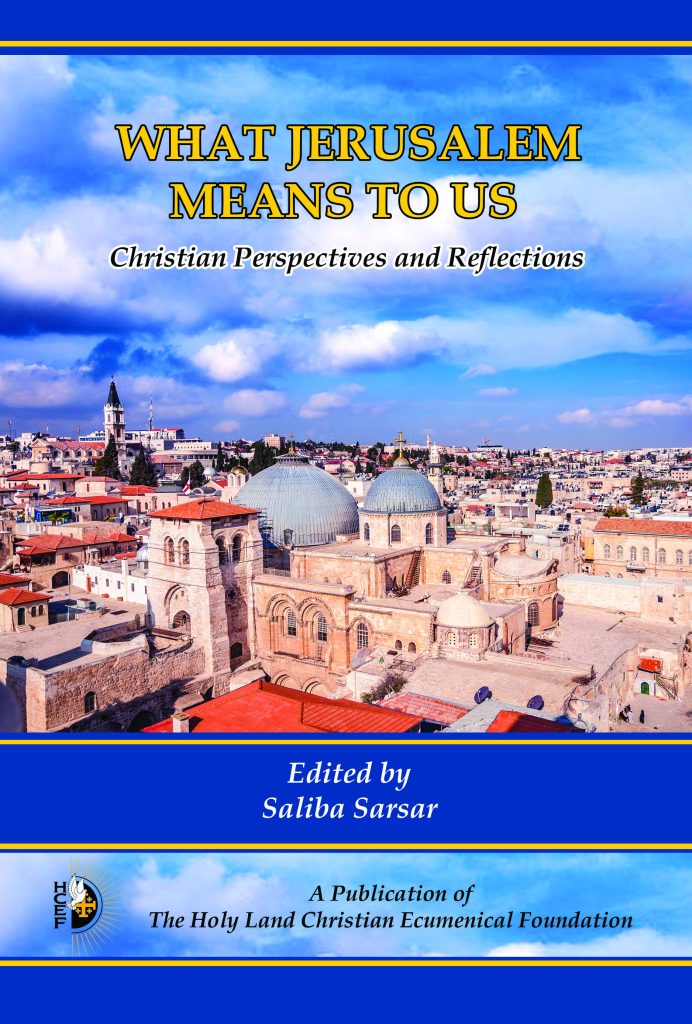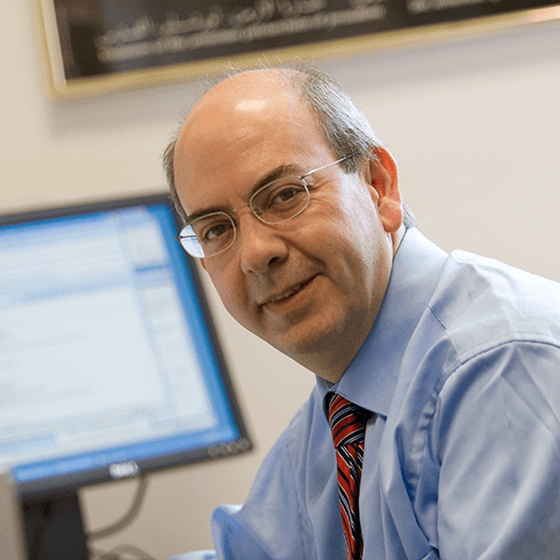Saliba Sarsar ’78, Ph.D., Monmouth University professor of political science and expert on Arab-Israeli peace issues and Middle East affairs, has published two books that examine Jerusalem’s history and the ongoing struggle for peace and unity its residents face.
 “What Jerusalem Means To Us: Christian Perspectives and Reflections” is a collection of essays by 23 Palestinian and other Christian leaders of various cultural, ethnic, and national backgrounds sharing their intimate experiences in and reflections on the Holy City. Sarsar, who edited the volume, says “What comes alive through each heartfelt essay is that Jerusalem belongs to humanity in general—to all who seek, strive for, and pursue a higher calling in its hallowed ground—and it should remain as such for eternity.” He said there are plans for two additional volumes that will focus on Muslim and Jewish perspectives and reflections.
“What Jerusalem Means To Us: Christian Perspectives and Reflections” is a collection of essays by 23 Palestinian and other Christian leaders of various cultural, ethnic, and national backgrounds sharing their intimate experiences in and reflections on the Holy City. Sarsar, who edited the volume, says “What comes alive through each heartfelt essay is that Jerusalem belongs to humanity in general—to all who seek, strive for, and pursue a higher calling in its hallowed ground—and it should remain as such for eternity.” He said there are plans for two additional volumes that will focus on Muslim and Jewish perspectives and reflections.
In “Jerusalem: The Home in Our Hearts,” Sarsar tells the colorful, multidimensional, and nuanced story of his own family’s history, which is inextricably tied to the Holy City. The book integrates aspects of daily life, community connections, and aspirations in the midst of poverty, conflict, and pain. Extending from the Ottoman control of Jerusalem to the British Mandate, from the 1948  Arab-Israeli War to Jordan’s rule, and from the Six-Day War to Israel’s rule, the story makes evident that ordinary people can overcome extraordinary conditions through faith, hope, and resilience.
Arab-Israeli War to Jordan’s rule, and from the Six-Day War to Israel’s rule, the story makes evident that ordinary people can overcome extraordinary conditions through faith, hope, and resilience.
“Regardless of the difficulties and uncertainties facing Jerusalem, the city remains the perfect place for checking the pulse, for hearing the heartbeat, for celebrations and songs,” said Sarsar. “Jerusalem calls attention to the human in each of us for realizing potential.”
Sarsar, who was born and raised in Jerusalem, has dedicated his life’s work to healing the differences between Israelis and Palestinians. He has received numerous awards for his efforts, which have been highlighted by media outlets around the world, including the New York Times. Last year, Sarsar shared with Monmouth magazine his experience living through the Six Day War as a child.

